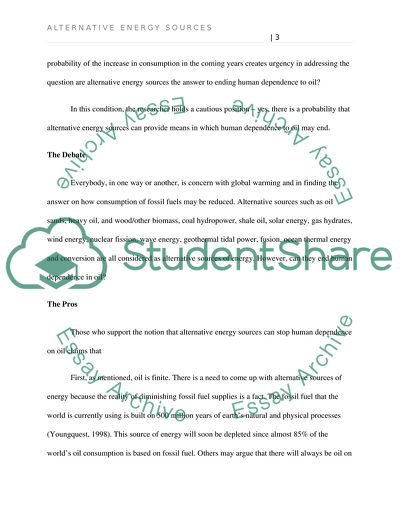Cite this document
(“Are alternative energy sources the answer to ending human dependence Thesis”, n.d.)
Are alternative energy sources the answer to ending human dependence Thesis. Retrieved from https://studentshare.org/environmental-studies/1581216-are-alternative-energy-sources-the-answer-to-ending-human-dependence-on-oil
Are alternative energy sources the answer to ending human dependence Thesis. Retrieved from https://studentshare.org/environmental-studies/1581216-are-alternative-energy-sources-the-answer-to-ending-human-dependence-on-oil
(Are Alternative Energy Sources the Answer to Ending Human Dependence Thesis)
Are Alternative Energy Sources the Answer to Ending Human Dependence Thesis. https://studentshare.org/environmental-studies/1581216-are-alternative-energy-sources-the-answer-to-ending-human-dependence-on-oil.
Are Alternative Energy Sources the Answer to Ending Human Dependence Thesis. https://studentshare.org/environmental-studies/1581216-are-alternative-energy-sources-the-answer-to-ending-human-dependence-on-oil.
“Are Alternative Energy Sources the Answer to Ending Human Dependence Thesis”, n.d. https://studentshare.org/environmental-studies/1581216-are-alternative-energy-sources-the-answer-to-ending-human-dependence-on-oil.


